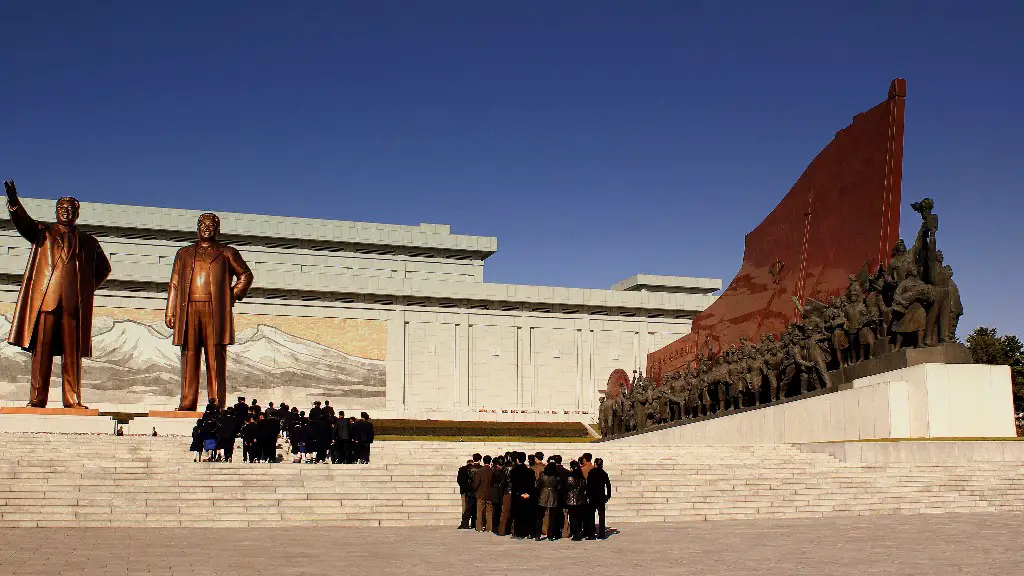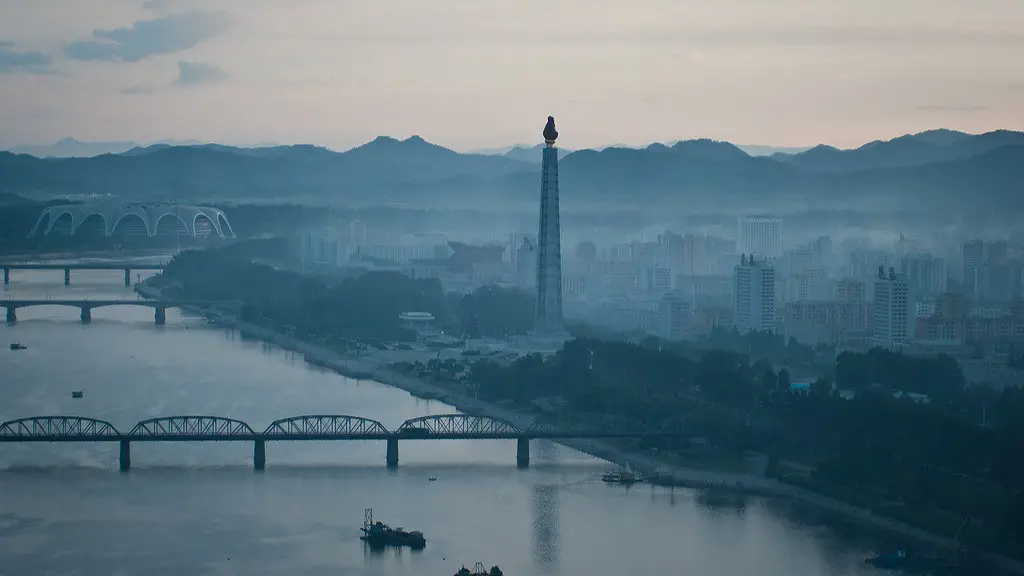Over the years, relations between the United States and North Korea have remained uneasy at best. Recently tensions have been heightened with North Korea’s testing of ballistic missile launches and US President Donald Trump’s exchanges of harsh rhetoric with North Korea’s leader Kim Jong-un.
The US Navy’s deployment of a massive aircraft carrier to the Korean Peninsula earlier this month has caused further speculation that a US-North Korean conflict could be imminent. Although current US State Secretary Rex Tillerson maintains that diplomacy is still preferred, some experts are increasingly pessimistic about the chances of averting war.
Joshua Pollack, from the Middlebury Institute of International Studies, believes “that the risk of a serious miscalculation or an accidental conflict is higher than at many points in the past.” Given the unpredictable nature of the Kim Jong-un regime and its ambition to become a fully-fledged nuclear power, it is not surprising that the US has taken firm stances with all the risk accompanying them.
The US government is aware that the world does not have enough reliable evidence to ascertain the full extent of North Korea’s nuclear and ballistic missile capabilities. Such uncertainty has created an impression of unaccountability on North Korea’s part. Meanwhile, policy makers in the US express their worries that North Korea’s nuclear missiles could soon reach US soil and create devastating results.
The key dilemma for the US is how to respond to North Korea without precipitating a full-scale war. Some suggest a pre-emptive strike would prevent the situation from becoming more dire, while others point out the immediacy risks of such aggression. North Korea’s foreign minister has stated that “a pre-emptive strike of any form will constitute in an all-our-out war,” indicating that the country might not hesitate to retaliate.
The challenges of managing the relation between the US and North Korea are vast and complex, and there still exists uncertainty as to whether or not the US will ultimately go to war with North Korea. No matter the situation, most experts advise that the US government should tread very carefully and try to minimise the chances of escalation.
The Impacts Of A Full-Scale War
The implications of a full-scale war between the US and North Korea would be enormous, both globally and locally. On a global level, the threat of nuclear war would be a reality, and could result in the loss of many innocent lives. Despite the US military capabilities being much more advanced than North Korea’s, the costs of a war in terms of human life would be unbearable.
The instability on a regional level could be disastrous. North Korea’s neighbours, including South Korea and Japan, would be especially affected due to the proximity of North Korea’s geographic location. Not only would they be exposed to potential military actions, they could also be partially responsible for the economic costs of a war. For instance, the costs of evacuating citizens in the event of war or providing humanitarian aid could potentially be enormous.
The Economic Costs Of A War
The economic costs of a war on both sides could be overwhelming. From an economic point of view, the US would have to increase its defence budget significantly in order to fund the costs of a war. Such increases could have a ripple effect, adding pressure on the US economy by reducing the financial resources available for other domestic needs.
At the same time, the US allies, particularly South Korea and Japan, could experience economic set-backs due to their trade and socio-economic ties with North Korea. Both countries rely heavily on exports for economic growth, and any disruption in trade due to a war could lead to a sharp decrease in growth rate.
Regarding North Korea, the economic costs of a war would be catastrophic. The already isolated country would experience a total economic breakdown, potentially leading to a humanitarian disaster. It is likely that both civilians and the military would lack access to essential commodities, resulting in a collapse of the health system and a dire situation for the people of North Korea.
The Role of Other Countries
The risk of a full-scale war between the US and North Korea would be so severe that other countries must play a role in preventing such a situation. China has been a key contributor at times, as it is one of the few countries that has good ties with North Korea. China has influence over North Korea, but it is not in a position to control it. China’s role here is twofold: as a diplomatic force in negotiations, and a potential buffer to any military action.
The UN could also play a role in preventing an escalation of tensions with North Korea. The Security Council could offer economic incentives, including the provision of food or medical assistance and create diplomatic pressure in an effort to change North Korea’s behaviour and deter it from pursuing nuclear capabilities.
The international community should also work together, both bilaterally and multilaterally, to support the US in finding a resolution to the situation. However, Russia’s recent knowledge of the US missile defense system would undermine any multilateral cooperation as Moscow would be wary of helping the US.
US Response
The US is constantly challenging North Korea’s nuclear ambitions. To that end, the US is currently pressuring China to apply sanctions and trying to shift North Korea’s behaviour through persuasion and deterrence. The US is also focused on developing missile defence systems, such as the Terminal High Altitude Area Defence (THAAD), and enhancing its alliance with South Korea, in order to protect and defend itself against potential threats.
In April 2017, the US Senate and House of Representatives passed a series of sanctions that would greatly impact North Korea. The sanctions were mainly targeted at pushing Pyongyang to end their nuclear and ballistic missile programs, and increase the effectiveness of existing sanctions against financial institutions, banks and companies involved in the trading of North Korean commodities or products.
Coupled with the US’ commitment to strengthening its defense capabilities and the rising prospects of a pre-emptive strike, the tensions between the US and North Korea show no sign of dissipating. The only thing that is certain at this stage is that time will tell whether or not the US will go to war with North Korea.
Conclusion
The future of US-North Korea relations remain uncertain, with the US continuing to take a hard stance. North Korea’s nuclear ambitions, in addition to its unpredictability and the lack of reliable information on the country’s capabilities, generates an increased risk of a conflict. A full-scale war between the two countries would also have catastrophic economic and regional impacts. Despite the US government’s moves to prevent war, the only certainty is that the reality of war depends on the ability to negotiate.




